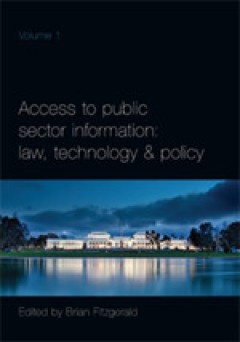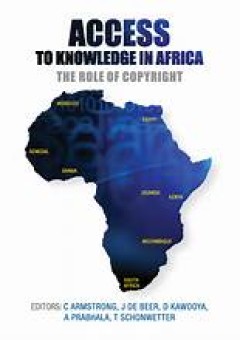Filter by

Advanced Research on Glucosinolates in Food Products
Glucosinolate-containing foods, such as vegetables from the plant order Brassicales and its derivative products, are valued for their health-beneficial properties. The latter are linked to glucosinolate hydrolysis products, such as isothiocyanates.The book "Advanced Research on Glucosinolates in Food Products" collects the latest research on the impact of the whole food supply chain, including …
- Edition
- -
- ISBN/ISSN
- 9783036529769
- Collation
- 238 hlm,: ill, lamp; 21 cm
- Series Title
- -
- Call Number
- -

Advanced Polymer Composite Materials: Processing, Modeling, Properties and Ap…
The use of composite materials is ubiquitous in every field of human activities, including in the agricultural, industrial, environmental, biomedical and transport sectors. After a pandemic with the simultaneous unfolding of an energy and climatic crisis, we now realize how necessary it is to carry out studies on composite materials based on polymers to positively affect our current society and…
- Edition
- -
- ISBN/ISSN
- 9783036578101
- Collation
- 480 hlm,: ill, lamp; 21 cm
- Series Title
- -
- Call Number
- -

Advanced Photocatalytic Materials for Environmental and Energy Applications
With the development of modern society, environmental pollution and energy shortages have become the focus of attention worldwide. Most of the global energy supplies are generated from fossil fuel, which gives rise to environmental pollution and climate change. Photocatalysis technology, which can directly convert solar energy into high value-added fuel and chemical materials or degrade a wide …
- Edition
- -
- ISBN/ISSN
- 9783036596488
- Collation
- -
- Series Title
- -
- Call Number
- -

Advances in Information Security and Privacy
Cloud computing is currently becoming a well-known buzzword in which business titans, such as Microsoft, Amazon, and Google, among others, are at the forefront in developing and providing sophisticated cloud computing systems to their users in a cost-effective manner
- Edition
- -
- ISBN/ISSN
- 9783036552958
- Collation
- 344
- Series Title
- -
- Call Number
- -

A Featural Typology of Bantu Agreement
The Bantu languages are in some sense remarkably uniform (SVO basic word order, noun classes, verbal morphology), but this extensive language family also show a wealth of morphosyntactic variation. Two core areas in which such variation is attested are subject and object agreement. The book explores the variation in Bantu subject and object marking on the basis of data from 75 Bantu languages, …
- Edition
- -
- ISBN/ISSN
- 9780198844280
- Collation
- 336 hlm
- Series Title
- -
- Call Number
- -

Access to Public Sector Information Volume 1
On the back of the growing capacity of networked digital information technologies to process and visualise large amounts of information in a timely, efficient and user-driven manner, we have seen an increasing demand for better access to and re-use of public sector information. The story is not a new one. Share knowledge and together we can do great things; limit access and we reduce the potent…
- Edition
- -
- ISBN/ISSN
- 9781920899394
- Collation
- oer.unej.ac.id
- Series Title
- -
- Call Number
- -

Access to Knowledge in Africa
The emergence of the Internet and the digital world has changed the way people access, produce and share information and knowledge. Yet people in Africa face challenges in accessing scholarly publications, journals and learning materials in general. At the heart of these challenges, and solutions to them, is copyright, the branch of intellectual property rights that covers written and related w…
- Edition
- -
- ISBN/ISSN
- 9781552504901
- Collation
- oer.unej.ac.id
- Series Title
- -
- Call Number
- Copyright law

Accentuate the Positive
Almost one hundred presentations from the 32nd annual Charleston Library Conference (held November 7–10, 2012) are included in this annual proceedings volume. Major themes of the meeting included alternative metrics for measuring impact, patron driven acquisition, Open Access monographs, the future of university presses, and techniques for minimizing duplication and emphasizing the unique in …
- Edition
- -
- ISBN/ISSN
- 9780983404378
- Collation
- oer.unej.ac.id
- Series Title
- -
- Call Number
- Library and information services

Academic E-Books
Academic E-Books: Publishers, Librarians, and Users provides readers with a view of the changing and emerging roles of electronic books in higher education. The three main sections contain contributions by experts in the publisher/vendor arena, as well as by librarians who report on both the challenges of offering and managing e-books and on the issues surrounding patron use of e-books. The cas…
- Edition
- -
- ISBN/ISSN
- 9781612494296
- Collation
- oer.unej.ac.id
- Series Title
- Charleston Insights in Library, Archival, and Information Sciences,
- Call Number
- -

African languages from a Role and Reference Grammar perspective
- Edition
- -
- ISBN/ISSN
- -
- Collation
- -
- Series Title
- -
- Call Number
- -
- Edition
- -
- ISBN/ISSN
- -
- Collation
- -
- Series Title
- -
- Call Number
- -
 Computer Science, Information & General Works
Computer Science, Information & General Works  Philosophy & Psychology
Philosophy & Psychology  Religion
Religion  Social Sciences
Social Sciences  Language
Language  Pure Science
Pure Science  Applied Sciences
Applied Sciences  Art & Recreation
Art & Recreation  Literature
Literature  History & Geography
History & Geography